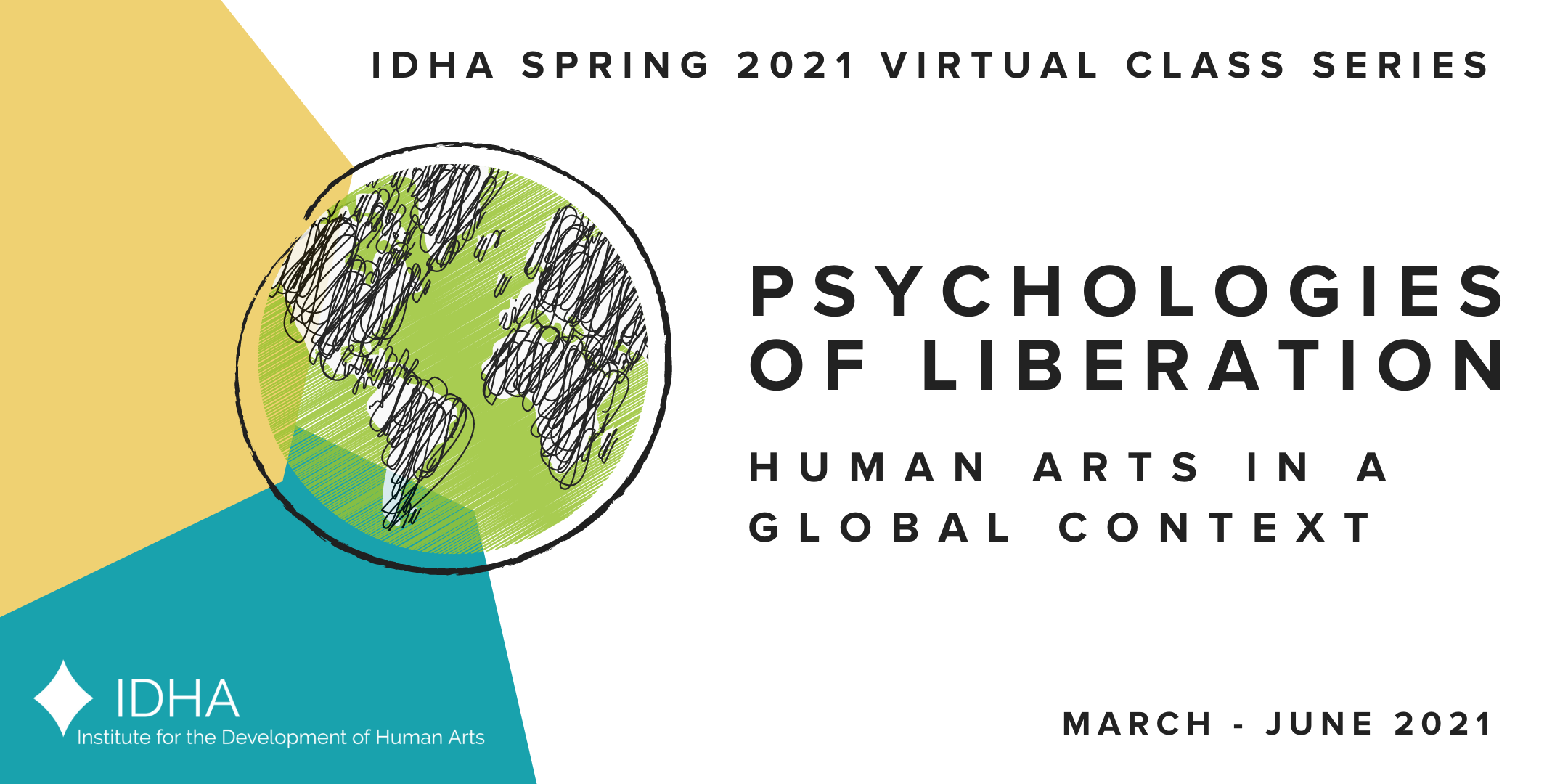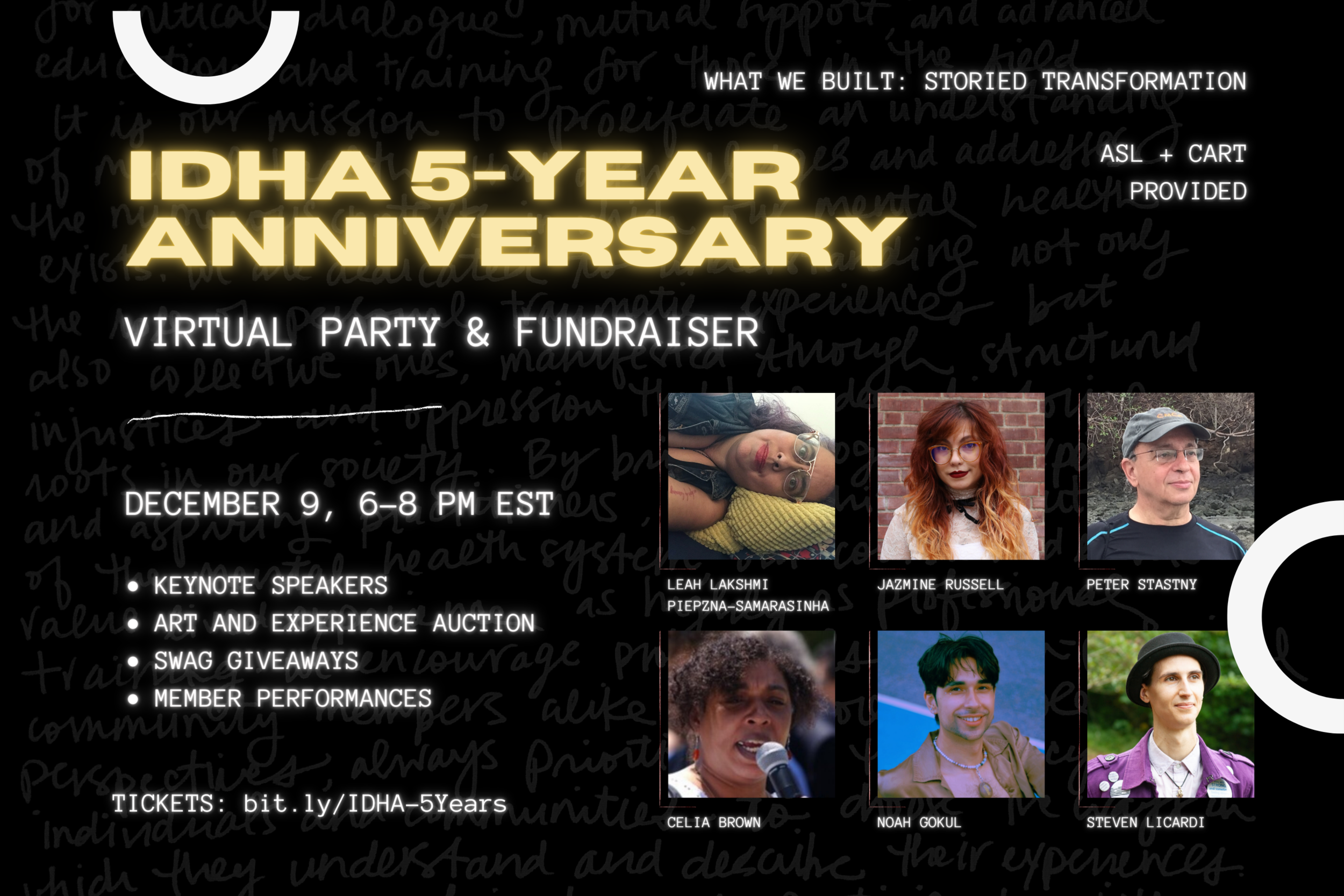Dear IDHA Community,
It’s an honor to present you with IDHA’s 2021 year in review. This is our second time publishing a recap like this, and I have to say, I think we’ve started an important tradition here. This recap is one way to memorialize and celebrate all that we created, accomplished, and survived throughout another year in IDHA history; it’s also a way in which we practice transparency and accountability – to our wider network and movement, and to ourselves.
2021 was a big year for IDHA, marking our 5-year anniversary. All of the work elaborated in the below report has deep roots in our early years of operations, because if there’s something you should know about IDHA, we love a deliciously slow process. I’m talking 2+ years to develop an organizational structure, 1+ year to develop our first strategic plan, and months and months of love and creativity poured into the incredible trainings we put on each spring and fall.
IDHA’s anniversary has put me in a particularly sentimental mindset, amplified by the fact that 2021 marks another big milestone in my personal life: a decade since a fire ignited deep in the core of my being to change/transform/dismantle the mental health system as we know it, and set me on a path of activism. I was lucky enough to stumble into IDHA along the way. If you’re reading this, you probably already know how special this organization is. Above all, I am so amazed and proud at the number of people with their fingerprints on IDHA. It’s in the hundreds and it’s growing every day. We are figuring out what it means to build a participatory, collaborative organization, to develop the leadership intrinsic in each one of us. It’s because of IDHA, and because of all of you, that I believe real mental health change is possible. I believe it because I watch it happen every single day. It gives me so much hope.
And we need hope. 2021 was another devastating year, teeming with grief, trauma, and uncertainty. We are nearly two years into an unprecedented global health crisis and mass disabling event. While it certainly isn’t news to those of us whose identities and bodies lie at the margins, it has finally become widely apparent just how ill-equipped our current health systems are in caring for people and communities struggling at such a large scale and with such diverse needs.
At IDHA, we speak often of “crisis as an opportunity,” or in the case of our fall 2021 series, crisis as a catalyst. This is not to minimize the hurt, pain, and confusion. We can, and must, hold space for the crisis itself, and then we can also see it as a portal: an opportunity to fashion new worlds rooted in community, connection, and relationship. We can’t keep going the way we are now. There is no such thing as “back to normal.”
Thank you for joining us on this journey. We look forward to what lies ahead as we continue to lean into uncertainty, building new worlds out of the broken pieces, all of us, together.
In solidarity,





























